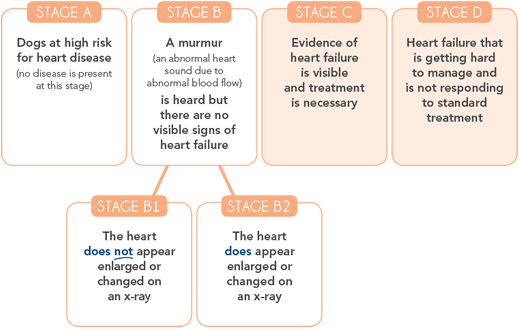 ACT NOW —
ACT NOW —
Implement the 2009 ACVIM Guidelines
American College of Veterinary Internal Medicine (ACVIM) issues guidelines for CHF treatment protocols1
In 2009, the ACVIM issued a consensus statement that recommended protocols for
diagnosing, treating, and managing congestive heart failure (CHF) in dogs.1
Click
here to view the ACVIM Consensus Statement
.
What are consensus statements?
"Consensus Statements of the ACVIM provide the veterinary community with up- to-date information on the pathophysiology, diagnosis, and treatment of clinically important animal diseases. The ACVIM Board of Regents oversees selection of relevant topics, identification of panel members with the expertise to draft the statements, and other aspects of assuring the integrity of the process."
"The statements are derived from evidence-based medicine whenever possible and the panel offers interpretive comments when such evidence is inadequate or contradictory. A draft is prepared by the panel, followed by solicitation of input by the ACVIM membership, which may be incorporated into the statement. It is then submitted to the Journal of Veterinary Internal Medicine, where it is edited prior to publication. The authors are solely responsible for the content of the statements.1"
ACVIM guidelines recommend VETMEDIN® (pimobendan) for first-line CHF therapy1
As part of the ACVIM guidelines, veterinary cardiologists agree that standard treatment for dogs with CHF should include VETMEDIN at the first appearance of clinical signs.1
ACVIM CHF Treatment Recommendations: Use VETMEDIN when clinical signs appear
2009 Guidelines—Specialty of Cardiology Consensus Panel of the ACVIM1


"The ACVIM consensus panel agrees that standard treatment for dogs with Stage C CHF should include furosemide, pimobendan, and an ACE inhibitor.” Steve Ettinger, DVM, Dipl. ACVIM (Cardiology, Internal Medicine)
Important safety information
Use only in dogs with clinical evidence of heart failure. The safety of VETMEDIN has not been established in dogs with asymptomatic heart disease or in heart failure caused by etiologies other than atrioventricular valvular insufficiency or dilated cardiomyopathy.
Reference:
1. Atkins C, Bonagura J, Ettinger S, et al. Guidelines for the diagnosis and treatment of canine chronic valvular heart disease. J Vet Intern Med. 2009;23(6):1142–1150.

 VETMEDIN is a registered trademark of Boehringer Ingelheim Vetmedica GmbH,
licensed to Boehringer Ingelheim Vetmedica, Inc.
VETMEDIN is a registered trademark of Boehringer Ingelheim Vetmedica GmbH,
licensed to Boehringer Ingelheim Vetmedica, Inc.